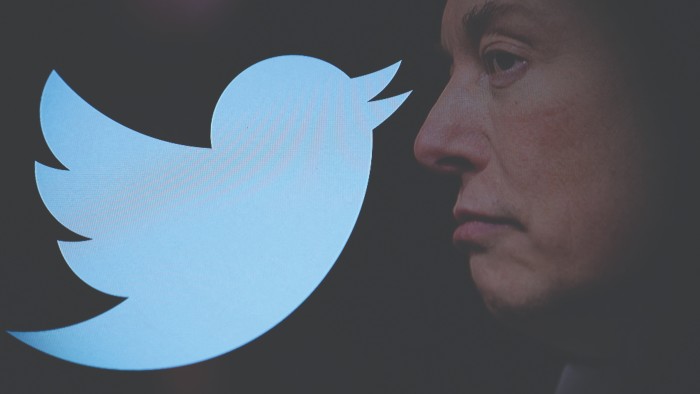MBA lessons from Elon Musk’s ‘hardcore’ work demand

Roula Khalaf, Editor of the FT, selects her favourite stories in this weekly newsletter.
Soon after Elon Musk took over Twitter last October, he made a comment that signalled a pivotal moment for the company and wider work practice. He warned that employees must commit to an “extremely hardcore” working culture or quit.
Musk’s approach to work could be seen as an almost platonic ideal of “hustle culture” taken to its extreme — a vision in which self-worth is defined by relentless work and striving. But workaholism can have bad consequences. A belief that taking breaks is a sign of weakness can even prove lethal: in 2017, for example, a Japanese journalist died from heart failure, after 159 hours of overtime in a month.
For business school students, the backlash to Musk’s edict should be instructive. Influencers and chief executives peddling autobiographies and attempting to impress investors tend to value workaholism. But researchers are increasingly questioning whether it makes any sense when running a good or ethical business.
Global MBA Ranking 2023

View the ranking here. Register for the February 22 Spotlight on MBA online event, and read the MBA report
Silvia Bellezza, associate professor of business in marketing at Columbia Business School in New York, says resistance to the pressure to overwork reflects a broader shift among young professionals. This follows a previous movement towards glorification of hustle culture — sometimes also described as “burnout culture”.
“In the past, conspicuous abstention from work conveyed prestige,” she says, “[but] an overworked and busy lifestyle progressively became a status symbol and a badge of honour.” The modern “rock-star” chief executive is often described as a “workaholic”, Bellezza says.
Perhaps the most telling symbol of Twitter’s lurch towards hustle culture was the installation of beds in its headquarters — a move that led San Francisco city officials to begin investigating the company for potential violations of the building code. Musk himself has declared that “nobody ever changed the world on 40 hours a week”.
But, elsewhere, Covid-19 has already prompted a shift away from hustle culture, with many white collar employees who worked from home during the pandemic now preferring to spend less time travelling and more with their families.
“Many professionals, especially younger ones, started questioning the pre-pandemic workaholic lifestyles and carving out more leisure time for themselves,” says Bellezza.
Employees had previously taken to LinkedIn to post promotions with impressive titles and bigger salaries, but Bellezza says that many are now bragging online about quitting instead, reflecting the “great resignation”, and workers leaving their roles.
The shift is not limited to the US, she adds. In China, the 2021 “tang ping” movement (meaning “lying flat”) emerged as a symbol of protest against a hypercompetitive job market and other social pressures faced by Chinese millennials and Generation Z.
“These trends and observations point to the fact that busyness and long work hours do not seem to hold the appeal they once did, before the pandemic, for the new generations of managers,” Bellezza says.
That should give business students pause for thought when considering how to motivate employees. They might also consider how the culture that they impose affects workers all the way down the corporate ladder. A report released last year by independent research organisation Autonomy studied hustle culture in “microwork” — short tasks carried out on digital platforms ranging from translation exercises and surveys to coding data to teach algorithms.
“These are people on lower incomes without permanent work,” says James Muldoon, one of the authors. “What they reported to us was they were really influenced by chief executives and influencers and felt they needed to be always productive.”
The spin from self-help gurus, and those influencers and chief executives, that hard work and bootstrapping alone is responsible for their success, is deeply misleading, he adds.
“The whole culture of saying ‘you’re not working hard enough’ masks the inequalities in opportunities that people have,” Muldoon says. “No matter how hard a microworker works, they won’t have the opportunities that a multimillionaire has. This idea that we all have 24 hours in a day and work harder than others, that’s just nonsense.”
For Muldoon, the most critical lesson for students is that companies’ policies do not simply emerge in a vacuum — they are the results of the vision its leadership pursues and implements. “One important point is that entrepreneurs are making conscious choices to set up particular business models,” he says. “They don’t have to choose the most exploitative models, which push the most responsibility and risk on to others.”
“Desperate people will always be forced to do difficult and dangerous work, which is the reason we have employment laws,” he says. “If you are starting out contributing to a business, you have the ability to decide on what it will look like.”
Comments